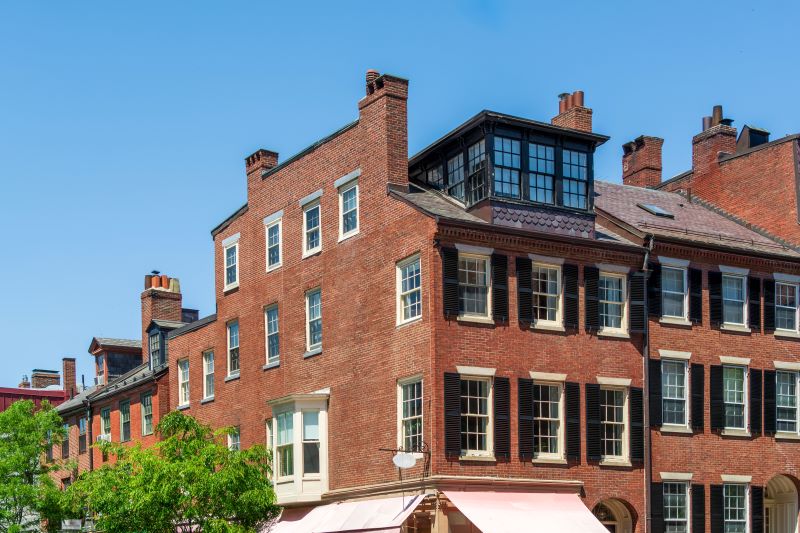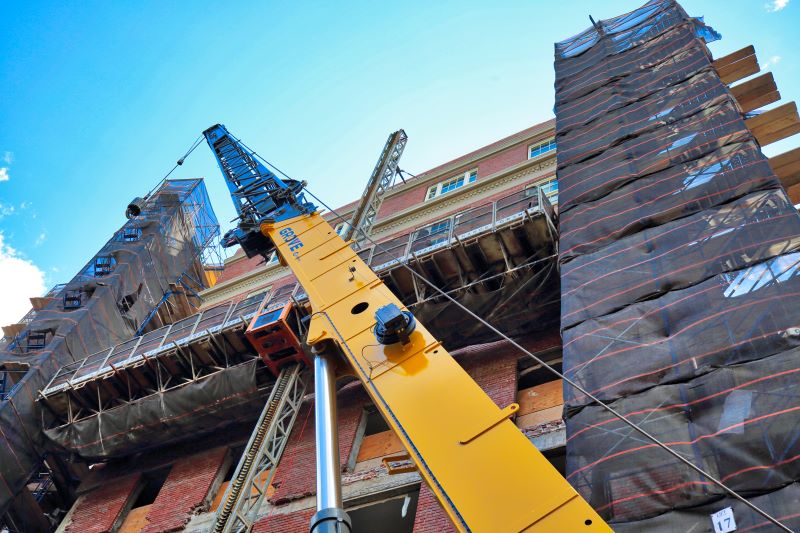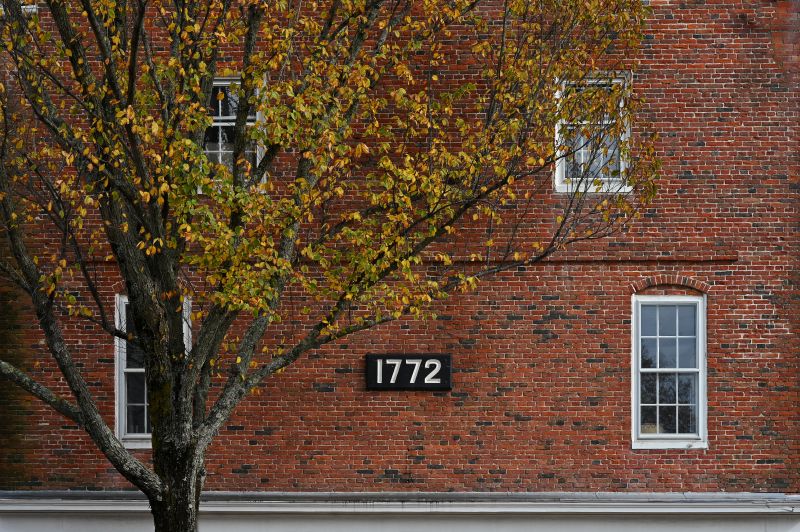
***UPDATED*** This market report has been updated, check out our 2025 Mid-Year Boston Apartment Rental Market Report!
We are more than halfway through the 2024 apartment leasing season and Boston’s rental market appears to be returning to some form of pre-covid availability normalcy. In March, apartment availability peaked above the 5% level for the first time in 3 years, giving renters more options to pick from in 2024. Rent price growth has eased from the double digit margins we were seeing in 2023 to a much more reasonable 5-6% year-over-year. There is also a recent flattening of rental price increases and numerous price reductions are occurring earlier than expected. Despite the relative easing in the rental market, rent prices are still at all time highs and apartment supply is low by historical standards. Have our questionable economic policies that spurned inflation finally caught up with us? Is it possible the consumer is gassed due to high energy prices and it’s related havoc on the value of their hard earned dollars? Here are the trends affecting Boston’s rental market during the peak of our summer leasing cycle.
Boston’s Apartment Supply Up Year-over-Year
The current real-time availability rate (RTAR) for Boston apartments is 3.79%. That marks a +34.69% increase year-over-year and a +54.93% increase since mid-July 2022. Current availability is closer to what we were seeing prior to the pandemic than what we’ve seen in the last two years, which were marked by the lowest RTAR on record. In 2024, the seasonal peak in RTAR reached 5.47% in late March compared to just 4.39% in 2023, and we have seen more overall rental inventory come to market the entire leasing season across numerous neighborhoods.
The current real-time vacancy rate (RTVR) in Boston is 0.81%. That figure has increased by +32.79% compared to last year and +113.16% compared to the RTVR in mid-July 2022. Boston’s RTVR has remained below the 1% level since December of 2021, during which time the market was bouncing back from some of the largest supply surpluses in history as a result of COVID. Since then, Boston’s rental supply has experienced supply scarcity unlike anything we’ve seen in recent history. Based on current figures, it appears like things are finally getting back to normal after a rough two years for renters.
According to our most recent Boston rental data, the median days on market for an apartment in the city is 28 days. That is down -17 days compared to a year ago and down -5 days month-over-month, which indicates that apartment demand is still strong in Boston and inventory is being absorbed at a brisk pace. As a result of the increase in apartment inventory this year, rent price growth has decelerated and leveled off over the first two quarters of 2024. The apartments that are properly priced are renting briskly and overpriced apartments are sitting longer than usual. This dichotomy of thinking by landlords and property managers in rental leasing strategy is probably due to their memories of the last two years where there was incredible low inventory and they felt they had the upper hand. We expected a higher turnover rate this year because most people eventually get tired of their same apartment and seek other options after a couple of years. We also expect to see a higher turn over rate next year as well.

Boston Average Rent Price Stabilizes
The current average rent price in the city of Boston is $3,265. That marks a +5.63% increase year-over-year and a +18.43% increase compared to mid-July 2022. The historic apartment shortage that was prevalent over the past 2 years helped fuel what has been some of the sharpest rent price growth we’ve seen in decades. Our legislature simply hasn’t been able to deliver compelling housing policies that work toward creating supply without bankrupting developers. During this period of inflation and high interest rates it shell shocked developers because it was impossible to get cost containment on labor, materials and affordable energy prices needed to build at scale. With record low inventory coming to market it was evident that prices on rent were not going to come down. That being said, rent prices have stabilized over the last 6 months, rising by a much smaller margin of +1.81% since February. When landlords have higher turnover in their portfolio they tend to hold prices stable and you are witnessing this play out in real time. This is welcome news for Boston renters who have endured exorbitant rent prices and slim inventory over the past 24 months. The bottom line is that we need far more supply and we need to stimulate housing without excessive regulations so that we bring down pricing for the consumer.
Boston Apartment Rental Market Trends
At first glance, it would appear that it's back to business as usual for one of the nation’s strongest housing markets. With inventory levels closely mirroring pre-pandemic trend lines and rent prices stabilizing, it would be easy to assume that we’re getting back to normal. The general rule of thumb for decades was that a significant portion of rental housing stock in Boston would raise their rents proportionally to how much universities increased tuition. Therefore if Harvard increased tuition and dorm housing by 3% most landlords would follow that pattern. However, there are still some recent interesting socio-economic trends that are worthy of attention.
Unemployment Uptick in Boston, MA
Boston’s unemployment rate rose sharply in May to 3.7%, up from 2.9% in April of 2024. Boston’s labor market has remained one of the strongest in the country over the past two years. As long as the local labor market remains strong and innovation keeps occurring, the unemployment number should trend back downwards over the next few months. Should we start to breach the 4.5% unemployment barrier we would certainly begin witness greater rental turnover, more leasing choices and faster price improvements or concessions. However, if unemployment reaches 6% you can rest assured rental pricing will come down in a meaningful manner. The silver lining of a poorly run city or bad economy with fewer jobs means rental prices drop.
Interest Rates and Inflation
The Fed has hinted that it may cut interest rates during the final quarter of 2024 following a 40 year high in CPI over the past few years. Interest rates going down would be warmly welcomed by landlords and developers alike. New construction slowed to a crawl over the past two years because rising interest rates have made profitability all but impossible for new developments. Banks are very tight right now and do not want to lend money in this high cost energy and inflation environment. Construction equipment uses and extraordinary amount of fuel and it ripples through the cost per square foot to build. The city’s housing supply has suffered as a result, with the ensuing shortage of housing driving up apartment prices for renters. For landlords, the cost of maintaining properties has never been higher, which has also contributed to rising rent prices. Lower interest rates would help alleviate the supply shortages and make working capital much more accessible.

New Housing Units Still Lagging In Metro Boston
As a result of inflation and high interest rates, the city has struggled to keep pace with housing demand. New housing starts have been trending downwards since January 2022 as interest rates have risen. So far, this year has been no exception, as we’ve seen very few new private housing structures authorized by building permits in metro Boston. Look no further than the massive 10,000 unit development at Suffolk Downs, which was recently put on hold largely due to high interest rates and poor access to working capital. The bottom line is that we also need to come up with a much better energy policy that significantly drives the cost of fuel down if we are going to see our construction industry boom again. You simply cant have high interest rates, high labor costs and sticker shock at the pump and expect to be building properties in a meaningful way.
Bill H4474 And Broker Fees
In March of this year, the Massachusetts Senate quietly proposed legislation that would prohibit broker’s fees from being charged to tenants for signing a lease. Generally, when a lease is signed, the tenant pays what usually amounts to one-month’s rent to the broker who leased the apartment. This bill would pass that fee onto the landlord instead of the tenant. Like many other rent control like measures, it may seem great at first glance, but it will ultimately lead to negative unintended consequences. If the landlord has to pay the broker fee, that cost will inevitably fall on the renter in the form of higher rent prices and security deposits. Most people in the business community look at these forms of unconstitutional control measures and publicity stunts created by insincere politicians. What is worse is that it tends to scare development away to other regions. Talent is lost and it is hard to get back construction workers once they leave an area. Capital goes where it is treated best and the endless threats of government intervention into the marketplace does far more overall harm than good.
Biden’s Rent Control Measure
Speaking of rent control measures, President Joe Biden recently proposed a nationwide rent cap of 5%. This follows a year when Massachusetts tried to resurrect its own form of rent control, which could have been disastrous for our commonwealth. We’ve discussed this policy at length in recent market reports. Just to reiterate, rent control measures do little to curb rent price increases. Instead, it leads to landlords withdrawing units from housing markets causing rental unit shortages, leads to the degradation of housing quality, and pushes rents even higher for non-controlled apartments. There is also a huge inefficient market calamity that is caused by rent control which actually leads to less overall people living in an apartment which further strains supply. Government has never been good at housing and it should focus on reducing red tape and barriers to development so that supply reigns supreme.

2024 Mid-Year Boston Apartment Rental Market Forecast
Look for rent prices to remain flat and move slightly downward as we approach the pivotal 9/1 leasing date in Boston. This year we’re seeing many more ‘price-reduced’ apartments in metro Boston in some of the more expensive areas as renters are becoming more budget conscious. Inflation is taking it’s toll on the consumer and it is starting to show. We are also getting rapidly closer to August 1st when landlords start to reduce pricing. The combined factors listed above should start to drive down the prices as we get closer to September 1st.
We do not foresee Boston’s RTAR bottoming out near 1% in 2024 like it did the past two Septembers. Supply absorption is not occurring at nearly the same rapid pace as it was last July, and at the current rate it will likely settle around the 2% mark this year. That excess inventory will likely cause rent prices to trend downwards in the final quarter of 2024 as landlords look to clear their vacant inventory.
We do expect RTVR to spike on September 1 this year much more than it has in the last two years. As previously mentioned, Boston’s vacancy rate has remained below 1% since December 2021. This was a startling trend considering that RTVR typically spiked well above the 2% level on September 1 in Boston in years prior to the pandemic. Look for the vacancy rate to climb above the 2% level again in 2024 as historical market trends begin to reemerge. We will continue to monitor these rental market trends as they develop here on Bostonpads.com.

Demetrios Salpoglou
Published July 22, 2024
Demetrios has pulled together the largest apartment leasing team in the Greater Boston Area and is responsible for procuring more apartment rentals than anyone in New England – with over 130k people finding their housing through his services. Demetrios is an avid real estate developer, peak performance trainer, educator, guest lecturer and motivational speaker.










